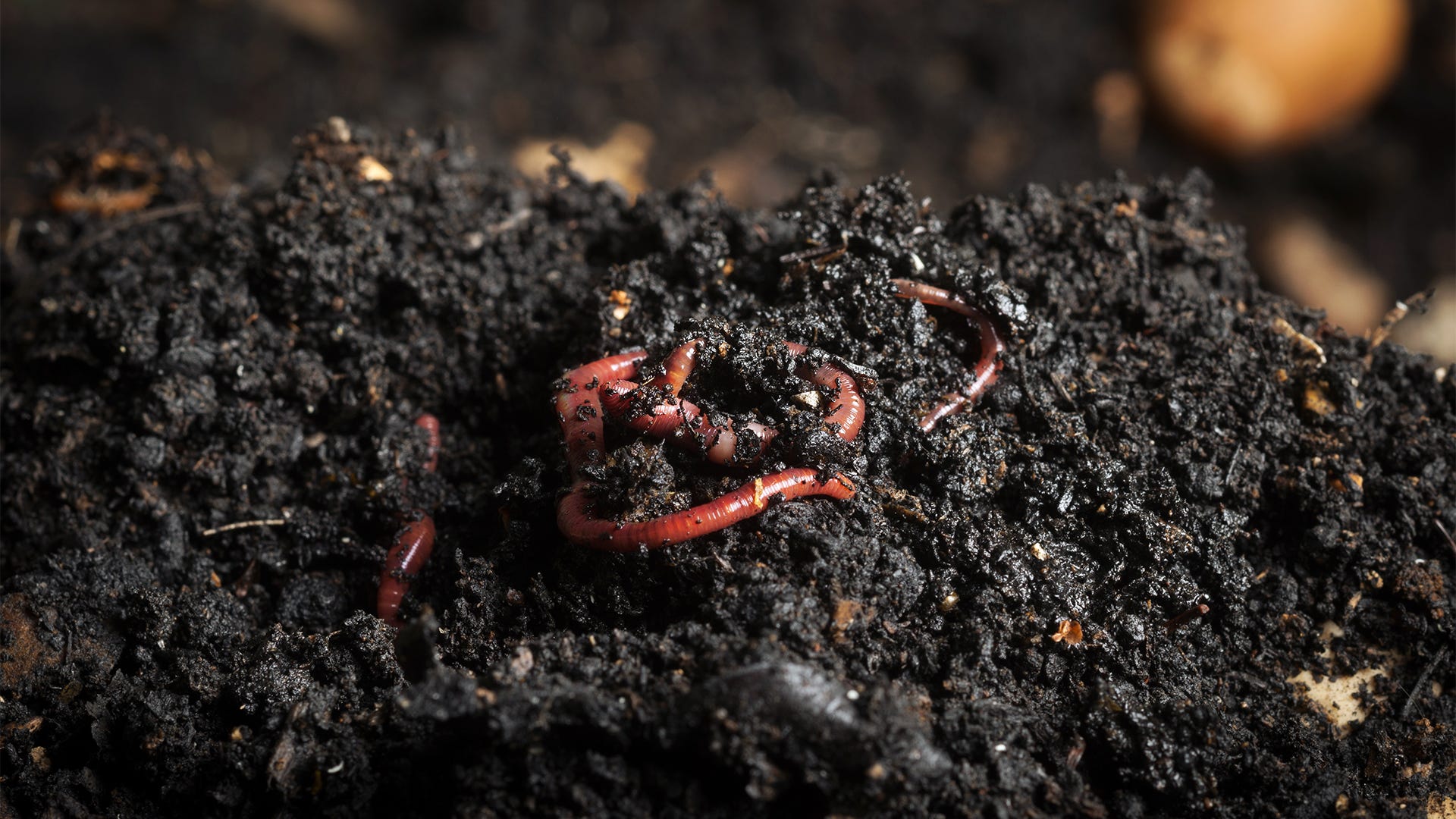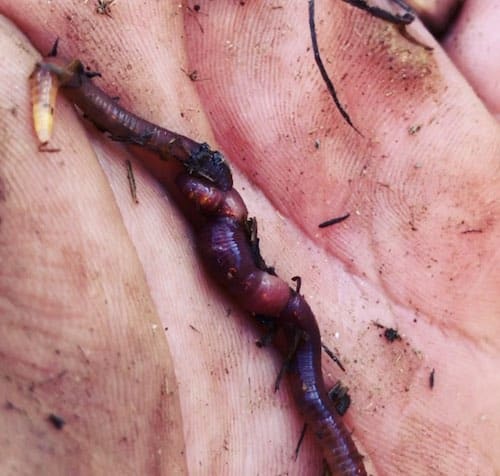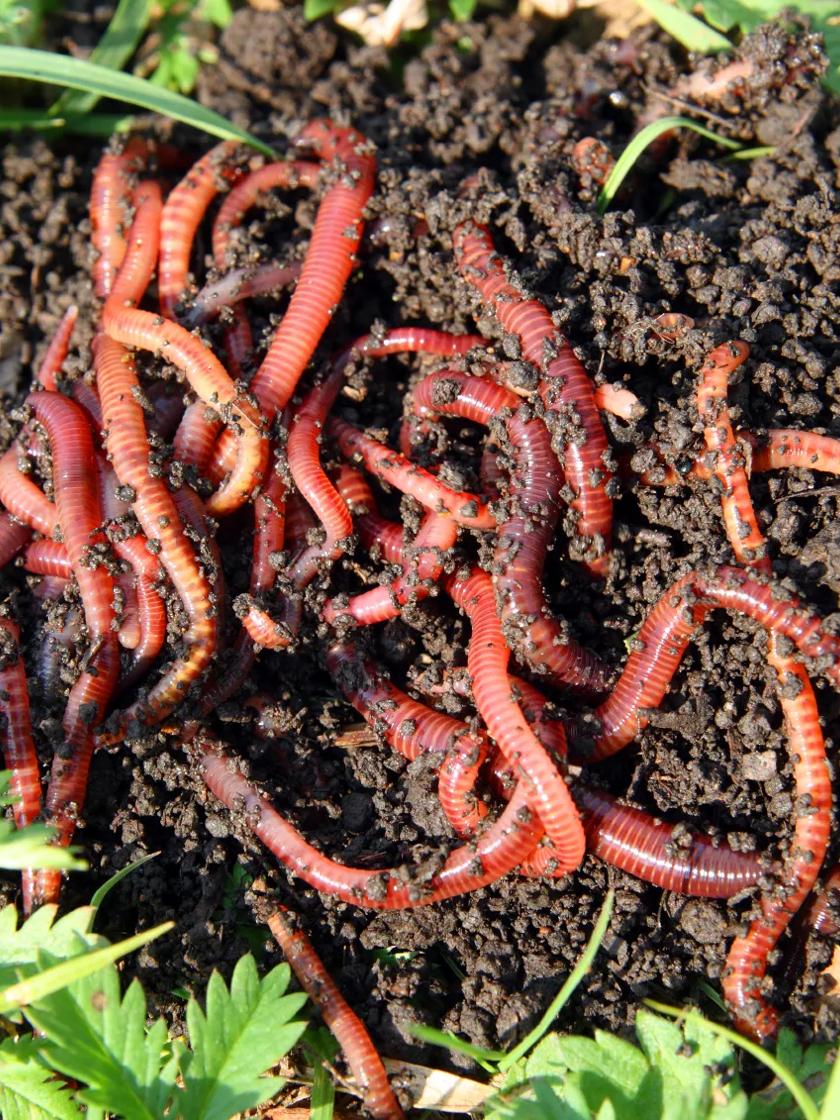Organic Composting with Red Wiggler Worms - Increase Your Garden's Development
Wiki Article
Red Wiggler Worms Demystified: Unlocking the Secrets of Vermiculture for Greener Living and Nutrient-Rich Dirt
In the world of lasting methods for enriching soil high quality and advertising eco-conscious living, red wiggler worms play an essential yet usually overlooked role. These modest creatures have the impressive capacity to transform organic waste into nutrient-rich castings that function as a potent all-natural plant food. By delving right into the globe of vermiculture, one can reveal a myriad of advantages that expand much past conventional composting techniques. Comprehending the ins and outs of looking after these worms, optimizing their setting, and utilizing their spreadings can result in a greener way of living and healthier soil for plants to flourish.The Role of Red Wiggler Worms
Red Wiggler worms play a vital duty in composting systems by effectively breaking down raw material into nutrient-rich spreadings. These voracious eaters eat a selection of natural products, such as kitchen scraps, lawn waste, and paper products. As they feed, the worms' digestive processes damage down the natural issue into a fine, dark, and nutrient-dense material referred to as worm castings or vermicompost.The spreadings produced by Red Wiggler worms are extremely useful for soil health and plant growth. They are abundant in essential nutrients like potassium, phosphorus, and nitrogen, which are vital for supporting healthy and balanced plant growth. In addition, worm castings have beneficial microorganisms and enzymes that help boost dirt framework, increase water retention, and enhance nutrient uptake by plants.
Benefits of Vermicomposting

Additionally, vermicompost, the nutrient-rich final result of vermicomposting, functions as an excellent organic plant food and dirt conditioner. It boosts soil framework, improves soil aeration, and raises soil moisture retention. These residential or commercial properties add to much healthier plants with more powerful origin systems and much better resistance to insects and illness. Vermicompost also improves the soil with crucial nutrients like nitrogen, potassium, and phosphorus, advertising plant development and overall soil fertility.
In addition, vermicomposting assistances sustainable gardening methods by providing a chemical-free and all-natural choice to synthetic fertilizers. Red Wiggler Worms. This eco-friendly technique not just improves the soil however additionally helps in reducing reliance on unsafe chemicals, advertising a greener and much more lasting way of gardening
Establishing Up a Worm Bin
When developing a worm container for vermicomposting, appropriate configuration is important to guarantee the success of the composting procedure. The first action in establishing up a worm bin is choosing a suitable container.After including the bed linens, introduce the red wiggler worms to the bin. The worms ought to then be provided with food scraps such as fruit and veggie peels, coffee grounds, and eggshells.
Consistently check the moisture levels and temperature level in the worm container to guarantee ideal problems for the worms. With correct setup and maintenance, the worm bin will properly transform organic waste right into nutrient-rich compost for your plants and yard.
Gathering Worm Spreadings
To effectively collect nutrient-rich worm spreadings from your vermicomposting system, a systematic harvesting method is vital. There are a few key actions to follow to make certain an effective process when it comes time to gather the directory worm spreadings. To start with, stop including fresh food scraps to one side of the worm container for a number of weeks prior to gathering. This urges the worms to migrate to the side with fresh bedding and food, making it easier to dig the spreadings from the various other side.
Troubleshooting Common Issues
Identifying and resolving common difficulties that may arise throughout the vermicomposting procedure is crucial for keeping a effective and healthy worm container. Including excess food scraps can lead to an accumulation of moisture and acidity in the worm bin, possibly harming the worms. Another problem is unpleasant smells emanating from the worm container.
Additionally, if the worm populace is declining or the worms appear undesirable, maybe because of environmental stressors such as extreme temperature levels or pH degrees. Keeping an eye on have a peek here these aspects and making essential adjustments is vital for the health of the worms. By troubleshooting these common concerns without delay, vermicomposters can make certain a smooth and successful vermicomposting procedure while preserving a growing worm populace.

Conclusion
In conclusion, red wiggler worms play a vital function in vermiculture by damaging down raw material into nutrient-rich dirt. The advantages of vermiculture include greener living and enhanced soil high quality. Establishing a worm bin is vital for successful vermiculture, and harvesting worm spreadings supplies important garden compost for horticulture. By comprehending and fixing usual issues, people can open the tricks of vermiculture for lasting living and healthier soil.As they feed, the worms' digestive procedures break down the organic matter right Discover More into a fine, dark, and nutrient-dense product understood as worm spreadings or vermicompost.
The castings produced by Red Wiggler worms are extremely useful for dirt health and plant development. Adding excess food scraps can lead to a buildup of moisture and acidity in the worm bin, possibly damaging the worms.Additionally, if the worm populace is declining or the worms appear unhealthy, it can be due to environmental stress factors such as extreme temperatures or pH levels. Establishing up a worm bin is vital for successful vermiculture, and collecting worm spreadings gives important compost for gardening.
Report this wiki page